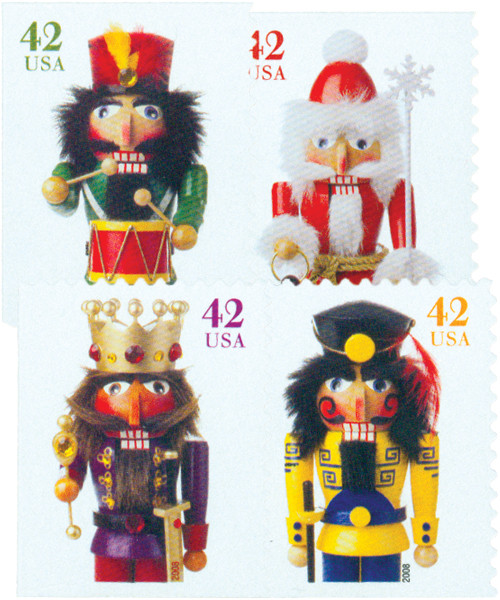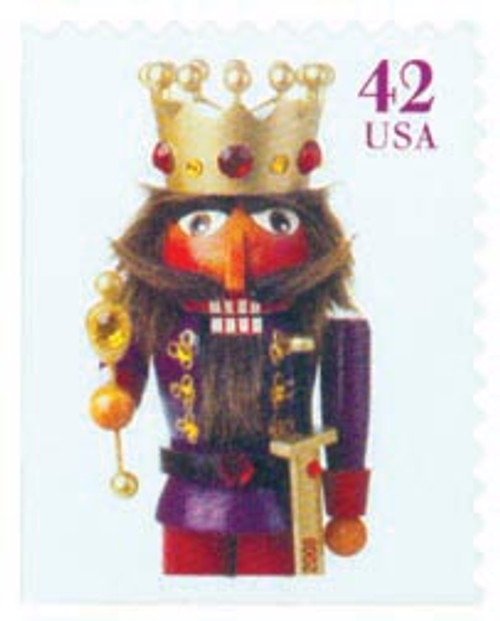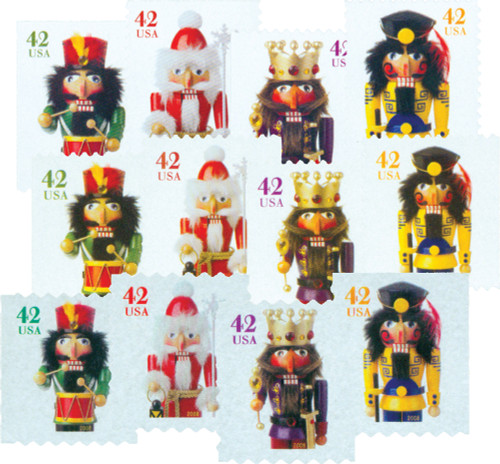
# 4361 FDC - 2008 42c Contemporary Christmas: Santa Nutcracker
U.S. #4361
Nutcracker – Santa
Contemporary Christmas
Convertible Booklet
Issue Date: October 23, 2008
City: New York, NY
From soldier-shaped nutcrackers to Santa Claus, many of the holiday traditions Americans cherish have their origins in Germany.
First came the nutcracker. The central regions of Germany claim boasting rights to some of the original nutcracker designs. The 18th century woodcrafters found enjoyment in designing figurines showing people of authority performing lowly tasks such as cracking nuts for people of less prominence and lower social stature.
Then came Santa Claus, whose tradition was brought to America by European immigrants. Legend states that his “true father” was German-born Thomas Nast, who illustrated the first Santa Claus for the Harper’s Weekly Christmas edition in 1862. Nast based his drawing on an image of Saint Nicholas, a fourth-century bishop known for his kindness and generosity toward children.
Decorating homes with modern versions of the original German nutcrackers has become almost as much a part of the holiday season as writing letters to Santa. Today, the popularity of these wooden figurines has increased the demand for collecting a wide range of nutcrackers, from the ever-popular king and soldier to the heartwarming charm of the Santa Nutcracker.
U.S. #4361
Nutcracker – Santa
Contemporary Christmas
Convertible Booklet
Issue Date: October 23, 2008
City: New York, NY
From soldier-shaped nutcrackers to Santa Claus, many of the holiday traditions Americans cherish have their origins in Germany.
First came the nutcracker. The central regions of Germany claim boasting rights to some of the original nutcracker designs. The 18th century woodcrafters found enjoyment in designing figurines showing people of authority performing lowly tasks such as cracking nuts for people of less prominence and lower social stature.
Then came Santa Claus, whose tradition was brought to America by European immigrants. Legend states that his “true father” was German-born Thomas Nast, who illustrated the first Santa Claus for the Harper’s Weekly Christmas edition in 1862. Nast based his drawing on an image of Saint Nicholas, a fourth-century bishop known for his kindness and generosity toward children.
Decorating homes with modern versions of the original German nutcrackers has become almost as much a part of the holiday season as writing letters to Santa. Today, the popularity of these wooden figurines has increased the demand for collecting a wide range of nutcrackers, from the ever-popular king and soldier to the heartwarming charm of the Santa Nutcracker.









